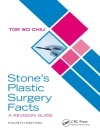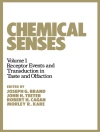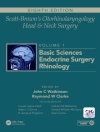The second, completely updated edition of this book offers an evidence based guide for clinical psychologists, psychiatrists, psychotherapists and other clinicians working with trauma survivors in various settings. It provides easily digestible, up-to-date information on the basic principles of traumatic stress research and practice, including psychological and sociological theories as well as epidemiological, psychopathological, and neurobiological findings. However, as therapists are primarily interested in how to best treat their traumatized patients, the core focus of the book is on evidence based psychological treatments for trauma-related mental disorders. The full range of trauma and stress related disorders is covered, including Acute Stress Reaction, Complex PTSD and Prolonged Grief Disorder, reflecting important anticipated developments in diagnostic classification. Each of the treatment chapters begins with a short summary of the theoretical underpinnings of the approach, presents a case illustrating the treatment protocol, addresses special challenges typically encountered in implementing this treatment, and ends with an overview of related outcomes and other research findings. Additional chapters are devoted to the treatment of comorbidities, special populations and special treatment modalities and to pharmacological treatments for trauma-related disorders. A novel addition is the chapter on Innovative interventions to increase global mental health. The book concludes by addressing the fundamental question of how to treat whom, and when.
विषयसूची
1. Introduction.- Part 1: Traumatic stress: the basic principles.- 2. Trauma as a Public Health Issue: Epidemiology of Trauma and Trauma-Related Disorders.- 3. Psychological and sociological theories of PTSD.- 4. An integrative view on the biopsychology of stress and posttraumatic stress disorder.- 5. Understanding Pathways from Traumatic Exposure to Physical Health.- Part 2: Stress and trauma related disorders.- 6. The diagnostic spectrum of trauma-related disorders.- Part 3: Psychotherapy.- 7. Early intervention after trauma .- 8. Prolonged Exposure Therapy .- 9. Cognitive Therapy for PTSD: Updating Memories and Meanings of Trauma.- 10. Cognitive Processing Therapy .- 11. EMDR Therapy for Trauma-Related Disorders.- 12. Narrative Exposure Therapy (NET) – reorganizing memories of traumatic stress, fear and violence.- 13. Brief Eclectic Psychotherapy for PTSD .- 14. STAIR Narrative Therapy .- 15. Prolonged Grief Disorder Therapy (PGDT).- 16. Innovative interventions to increaseglobal mental health.- Part 4: Treating comorbidities.- 17. Trauma and substance abuse: A clinician’s guide to treatment.- 18. Treating PTSD and Borderline Personality Disorder.- 19. The Complexity of Chronic Pain in Traumatized People – Diagnostic and Therapeutic Challenges.- Part 5: Treating special populations.- 20. Evidence-based treatments in children and adolescents .- 21. Treating PTSD Symptoms in Older Adults.- 22. Treatment of traumatized refugees and immigrants.- 23. Considerations in the Treatment of Veterans with Posttraumatic Stress Disorder.- Part 6: Special treatment modalities.- 24. Group treatment of PTSD .- 25. Couple Treatment for Posttraumatic Stress Disorder.- 26. Telemental Health Approaches for Trauma Survivors.- Part 7: Pharmacotherapy.- 27. Pharmacologic treatment for trauma-reated psychological disorders .- Part 8: Conclusions.- 28. Next Steps: Building a Science for Improving Outcomes.
लेखक के बारे में
Ulrich Schnyder, MD, is a psychiatrist and licensed psychotherapist. He is emeritus professor of psychiatry and psychotherapy at University of Zurich, Switzerland. Until 2018, he was head of the Department of Psychiatry and Psychotherapy at the University Hospital Zurich. His scientific activities are focused on various aspects of traumatic stress research, including epidemiology, neurobiology, psychotherapy and pharmacotherapy for PTSD, resilience to stress, and, more recently, refugee mental health, and the emotional, psychosocial and physical consequences of child maltreatment. He is a Past President of the European Society for Traumatic Stress Studies (ESTSS), the International Federation for Psychotherapy (IFP), and the International Society for Traumatic Stress Studies (ISTSS). He is the recipient of the 2013 ESTSS Wolter de Loos Award for Distinguished Contribution to Psychotraumatology in Europe, and the 2016 ISTSS Lifetime Achievement Award.
Dr. Marylene Cloitre a Research Health Science Specialist at the National Center for PTSD Dissemination and Training Division at the Palo Alto VA Health Care Services, California, USA. She is also Clinical Professor (Affiliate) of the Stanford University Department of Psychiatry and Behavioral Sciences. Her research and clinical work for the past 30 years has focused on the long-term effects of childhood trauma on social and emotional functioning. Her current research is dedicated to the development of effective, patient-tailored, flexibly-delivered mental health programs for trauma exposed populations. She was the founding director of the Institute for Trauma and Recovery at the New York University Langone Child Study Center following 9/11 and was a member of the advisory board for the planning of the 9/11 Memorial Museum. Dr. Cloitre is past-president of the International Society for Traumatic Stress Studies and was a member of the World Health Organization (WHO) ICD-11 working group on trauma-spectrum disorders. She is also the 2015 recipient of the Award for Outstanding Contributions to the Practice of Trauma Psychology from Division 56 of the American Psychological Association.












